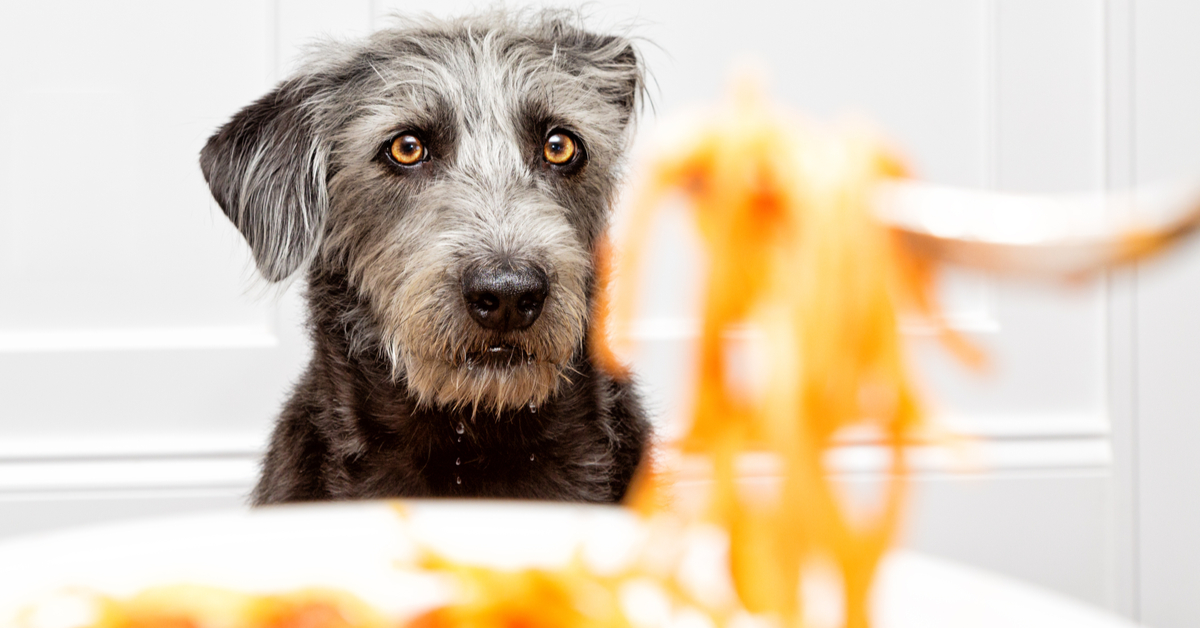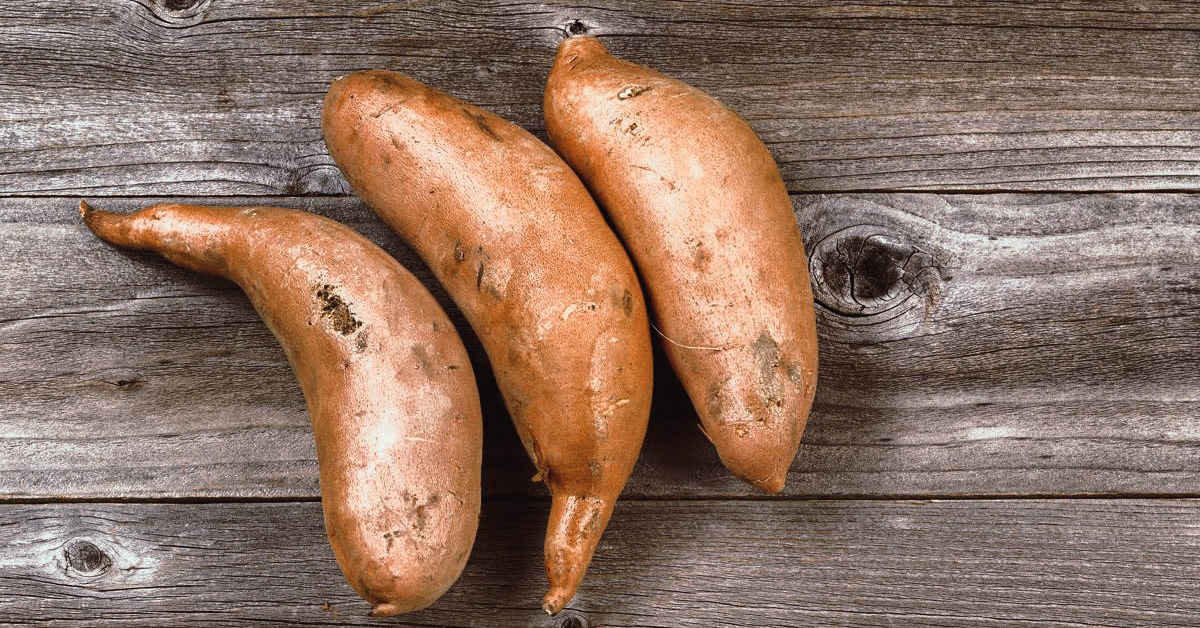Disney might have lead dog owners into a false sense of security with that famous “Lady & the Tramp” spaghetti scene. But can dogs eat spaghetti sauce in real life? It’s best to avoid it. That giant plate of spaghetti could be covered in a tomato sauce that contains harmful ingredients for your pet. Of course, no one was thinking about that in 1955 when that now-famous scene hit the big screen.
As it turns out, dogs and tomatoes (and tomato-based foods) have a complicated relationship. In certain cases, it might be OK if your dog eats a tomato, but tomato sauces and soups are an entirely different story.
Whether you’re preparing a homemade Italian pasta dish or a refreshing summer staple like gazpacho, you need to be careful of which ingredients fall to the floor for your “kitchen helper” to gobble up.
Read on to learn more about tomato plants, tomato-based people food, and how they can affect your dog’s health.
Tomayto, Tomahto

Let’s start at the origin of spaghetti sauce, ketchup, tomato soup and the like: the tomato plant. However you pronounce it, it’s important to know what it is about this member of the nightshade family that’s hazardous.
While ripe tomatoes are safe in small quantities, it’s not a good idea to let your dog have green parts of the plant. Green tomatoes should be avoided as well. They contain a potentially toxic substance called tomatine. Tomatine is a chemical compound found in the stems and leaves of tomato plants. According to DVM Jennifer Coates of PetMD, dogs can get gastrointestinal issues if they ingest any tomatine-heavy green part of the tomato plant.
Another chemical compound found in the green parts of the tomato plant that is poisonous is called solanine. A very large amount of solanine would need to be ingested by a dog in order to display toxicity. Here are the common side effects according to the ASPCA:
- hypersalivation (drooling)
- dilated pupils
- slow heart rate
- digestive system upset
- lethargy
If you give your dog tomato, don’t so so in large quantities. A little bit is OK — even healthy! If you think your dog might have gotten into trouble snooping in your garden, however, call your vet as soon as possible. Pet owners can also call the Pet Poison Helpline at 800-213-6680.
Health Benefits of Tomatoes
Aside from the green portions, tomatoes offer some good health benefits! They contain antioxidants and important vitamins and minerals like vitamin C and potassium. Plus, they are a great low-calorie snack.
At the end of the day, however, giving your dog tomatoes isn’t necessary. You pooch gets all their nutritional requirements through their regular dog food. If you are going to share ripe tomatoes with your dog, just make sure you don’t overdo it in order to avoid causing an upset stomach.
What about pasta sauce? Can dogs eat spaghetti sauce?

Here’s the deal with pasta sauce and dogs: it depends on the ingredients. Most of the time, pasta sauces contain ingredients that are especially toxic to dogs like onions, garlic, and chives. Some even contain preservatives or dangerous sweeteners like xylitol, a sugar substitute that is extremely toxic to dogs. Same goes for ketchup.
Symptoms of onion toxicity, for example, include anemia/red blood cell loss, foul breath, nausea, drooling, vomiting, diahrria, and weakness.
If your dog displays any of these symptoms, contact your veterinarian as they will need to treat onion toxicity as soon as possible. If the toxin has already been inside of your dog for a while, they will need IV fluids and medication. Depending on the severity of anemia, they might require a blood transfusion.
As you can probably tell, it’s not the sauce itself that’s poses the danger, but its components. Onions and garlic are at the very top of the list of human foods that are most toxic to dogs. It’s not worth the risk.
Safer Veggie Alternatives

Contrary to popular belief, some dogs do love vegetables! As long as they are getting it in moderation, they’ll be happy you shared a special treat with them.
Vegetables and fruits that are safe for dogs to eat in moderation include broccoli, bananas, carrots, sweet potato, pumpkin, cauliflower, cucumber, and green beans.
Sweet potato is used in many healthy single-ingredient dog treats. Sweet potatoes are packed with disease-fighting antioxidants and are great for the digestive system.
Engage your dog’s mind in addition to their appetite by hiding some bite-sized pieces in a slow feeder, interactive dog puzzle, or treat dispensing toy.
Dogs and Spaghetti Sauce: The Pastable Outcomes Aren’t Good
When it comes to spaghetti and pasta sauces, it’s better to play it safe — especially during the holidays. Unless you know each and every ingredient that’s in that sauce, don’t give it to your dog.
If you simply must share your spaghetti dinner with your pooch, a plain, sauce-less strand will do just fine. Otherwise, a trip to the vet will cost you a pretty penne.

